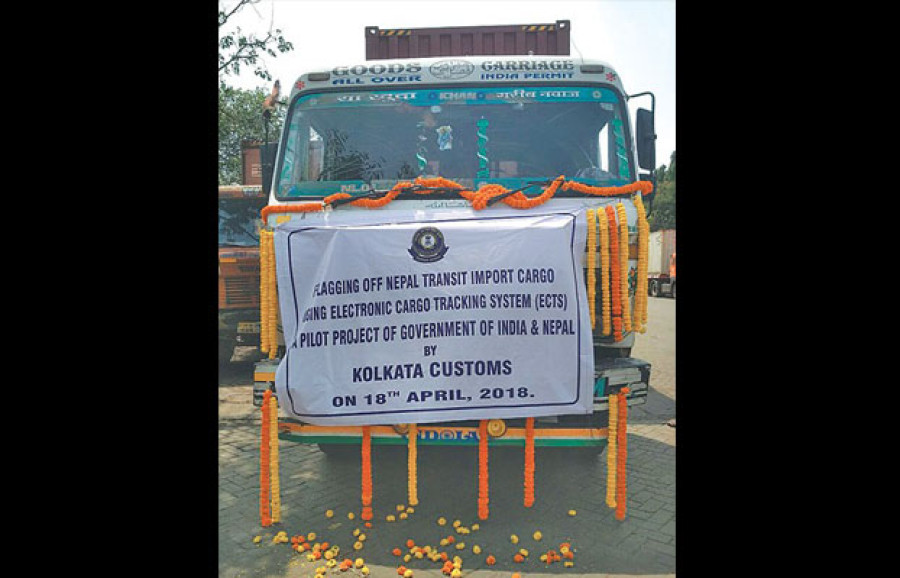Money
Vehicle and consignment tracking system to be enforced from the new fiscal year
Traders sending goods by cargo truck will be required to make an online declaration with details of the shipment.
Rajesh Khanal
The government will implement a vehicle and consignment tracking system for cargo trucks from the new fiscal year that starts July 17 which will allow it to follow the shipment's journey and prevent revenue leakage.
Traders shipping goods by cargo truck will be required to make an online declaration providing details of the customs declaration, type of goods and their quantities, registration number of the vehicle carrying the cargo and profile of the driver.
According to a notice published in the Nepal Gazette on Monday, the government has asked all cargo transporters to submit details to the central information system, an integrated platform of the Department of Customs and Inland Revenue Department. The system will be implemented for trucks used to import merchandise and distribute products within the country.
Under the system that will be enforced by the Department of Revenue Investigation, traders need to submit details about the goods they are shipping from one place to another. The tracking system shows the whereabouts of the vehicle at any given time.
Dirgha Raj Mainali, director general of the department, said the system is designed to check for possible tax evasion by traders. “The system will allow tax officials to check the vehicles transporting goods at any location in case any misconduct is suspected,” said Mainali.
Truck entrepreneurs are not happy with the government's initiative and said it was ‘impractical’. "We cannot insert all the details into the computer-based system each time we load and unload goods while transporting them," said Kamal Kharel, past president of the East Nepal Mechi Truck Entrepreneurs Association.
Kharel also expressed his dissatisfaction that the government did not consult stakeholders while planning the system. “If the government forcibly implements the system, we will be compelled to launch a countrywide protest,” said Kharel. He added that they were ready to register for value added tax which the government is implementing from the next fiscal year.
Three weeks ago, the department started piloting of the vehicle and consignment tracking system in line with the budget statement for 2019-20. “The chain from production and transportation to distribution will be connected to the tracking system for controlling revenue leakage through smuggling and minimising malpractices in the transportation of domestic products,” the budget statement said.
Currently, the government spends a large amount of money to track smuggled goods. For this purpose, the department operates several check posts mainly along the routes over which imported goods are shipped. According to the department, it will remove many of them and track shipments using the online system after it is implemented.
The paperless system is also expected help traders reduce the cost of trading. “After the system comes online, traders will not have to travel long distances to submit their purchase bills to several government offices. In addition, traders can use the interface to find out where their shipments are as they are being transported to their destinations,” said Mainali.
The vehicle and consignment tracking system is one of the government’s attempts to control revenue leakage. The government through the budget has come up with a number of measures such as making permanent account number mandatory for individuals involved in economic activities, bringing cargo vehicles under the value added tax net and extending electronic payment to all possible outlets and integrating them in the central billing monitoring system housed at the Inland Revenue Department.
The government has also planned to install a revenue board as a permanent mechanism to aid tax authorities in their daily operations.




 9.83°C Kathmandu
9.83°C Kathmandu















